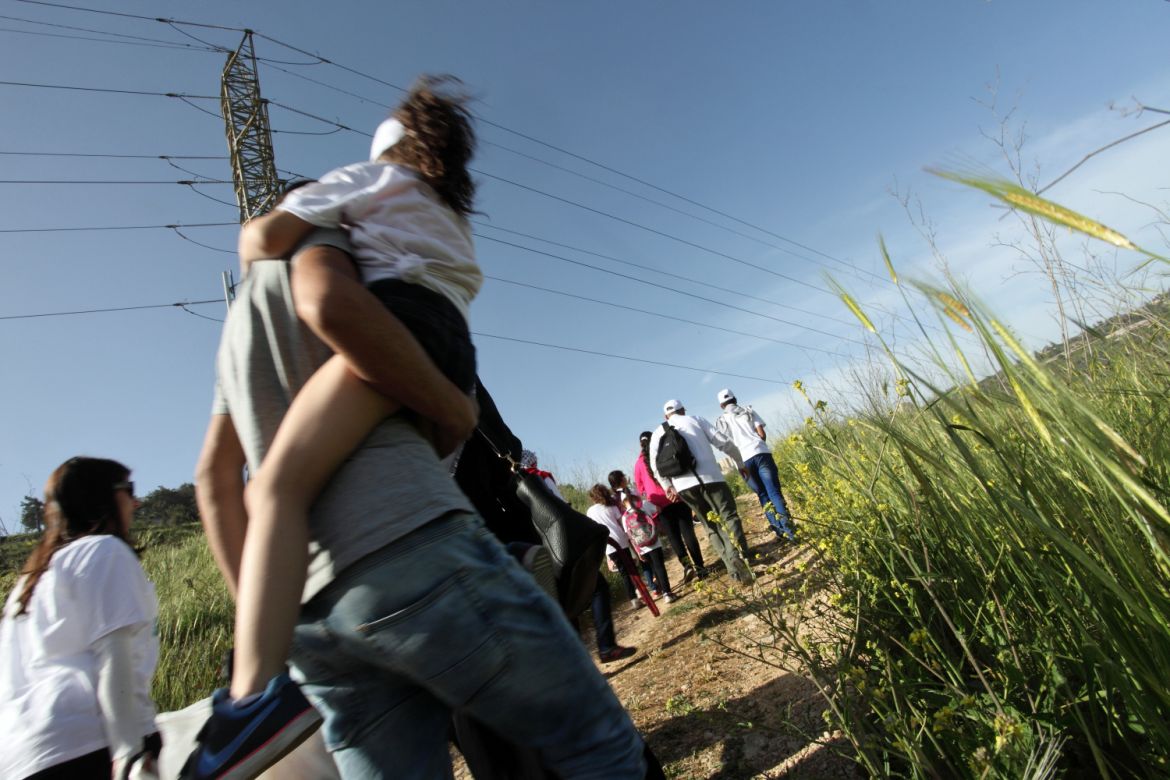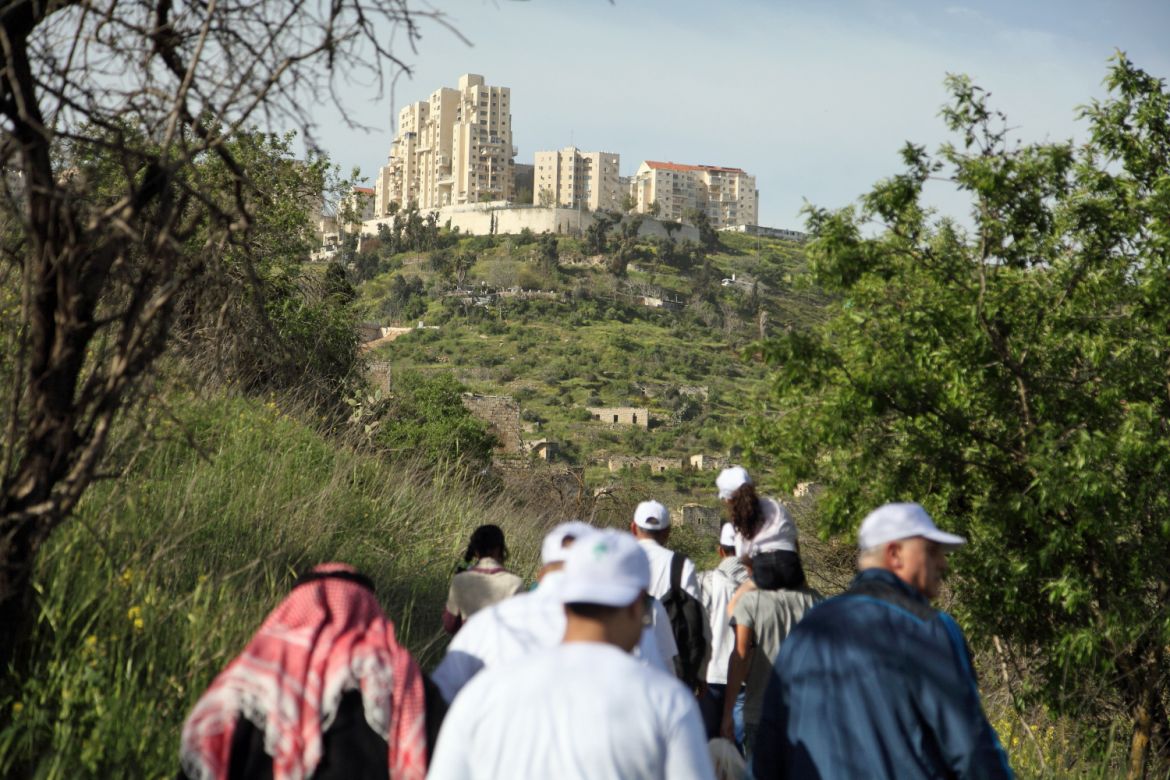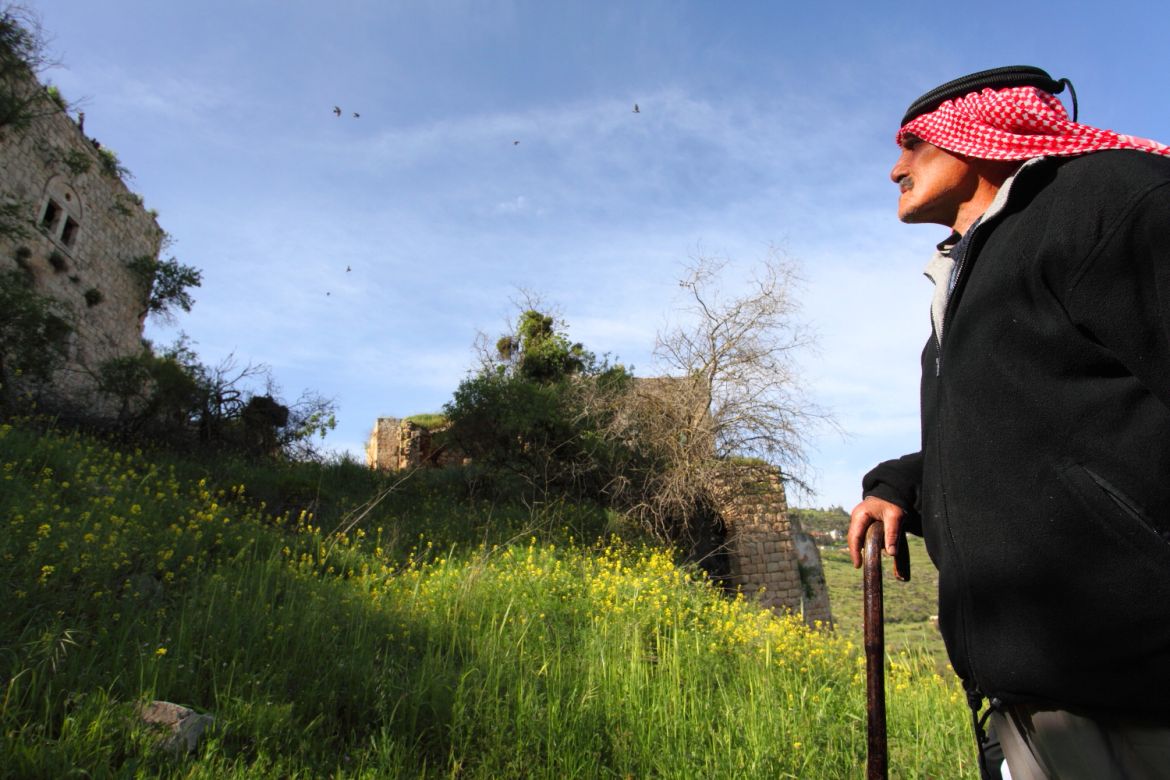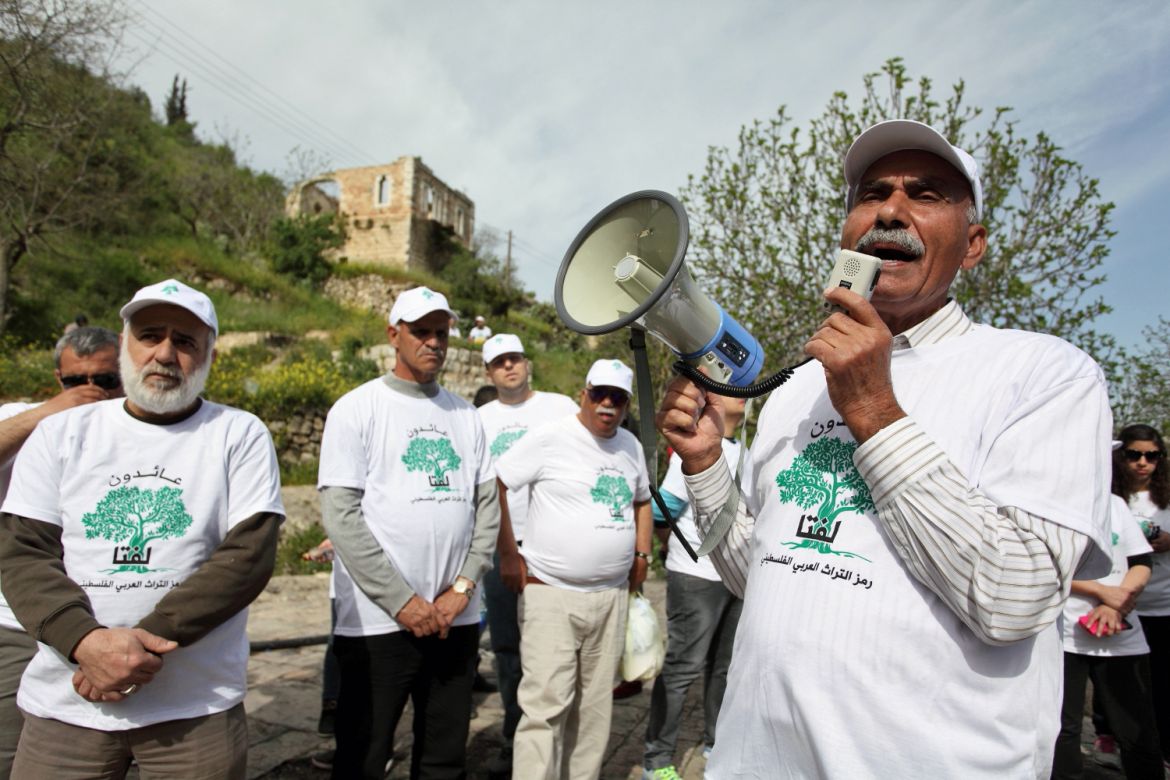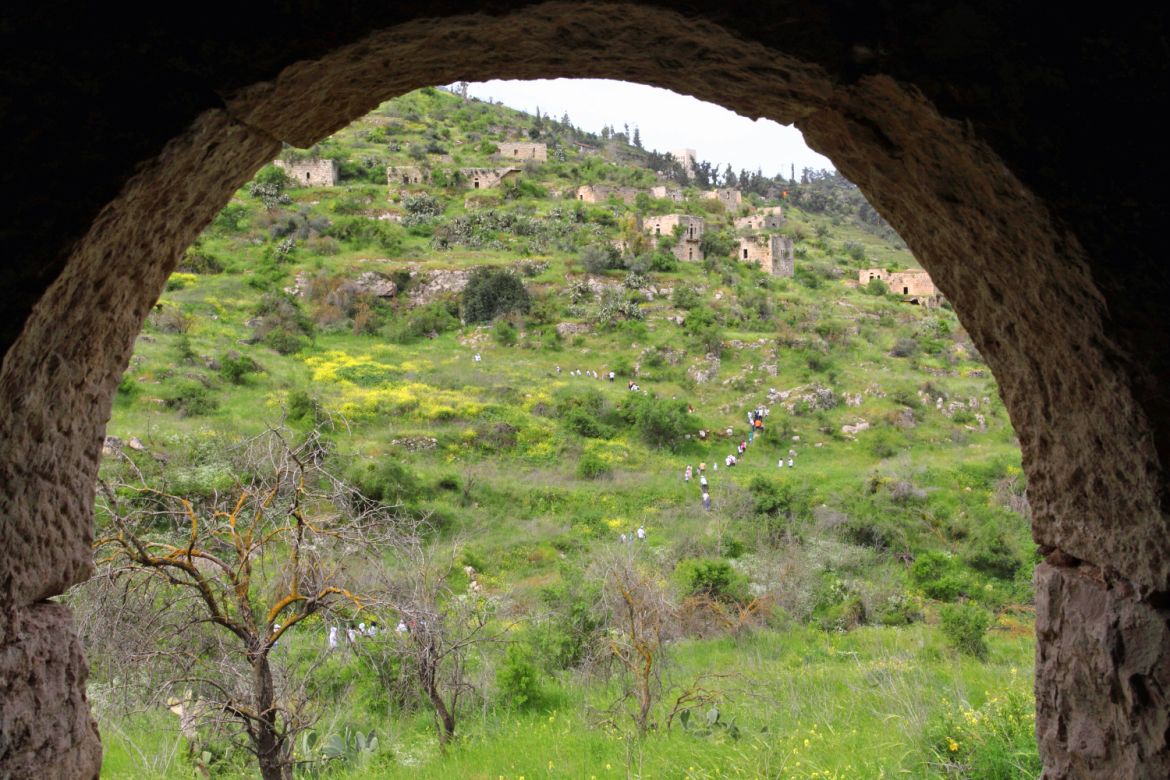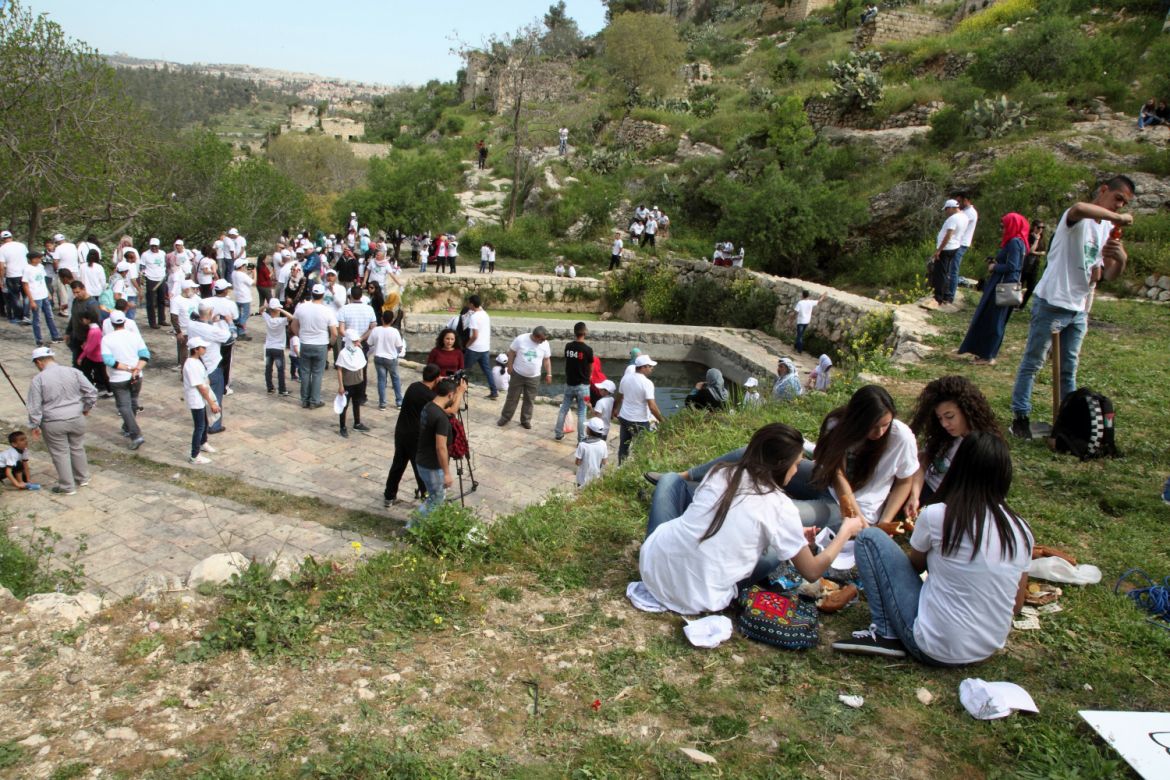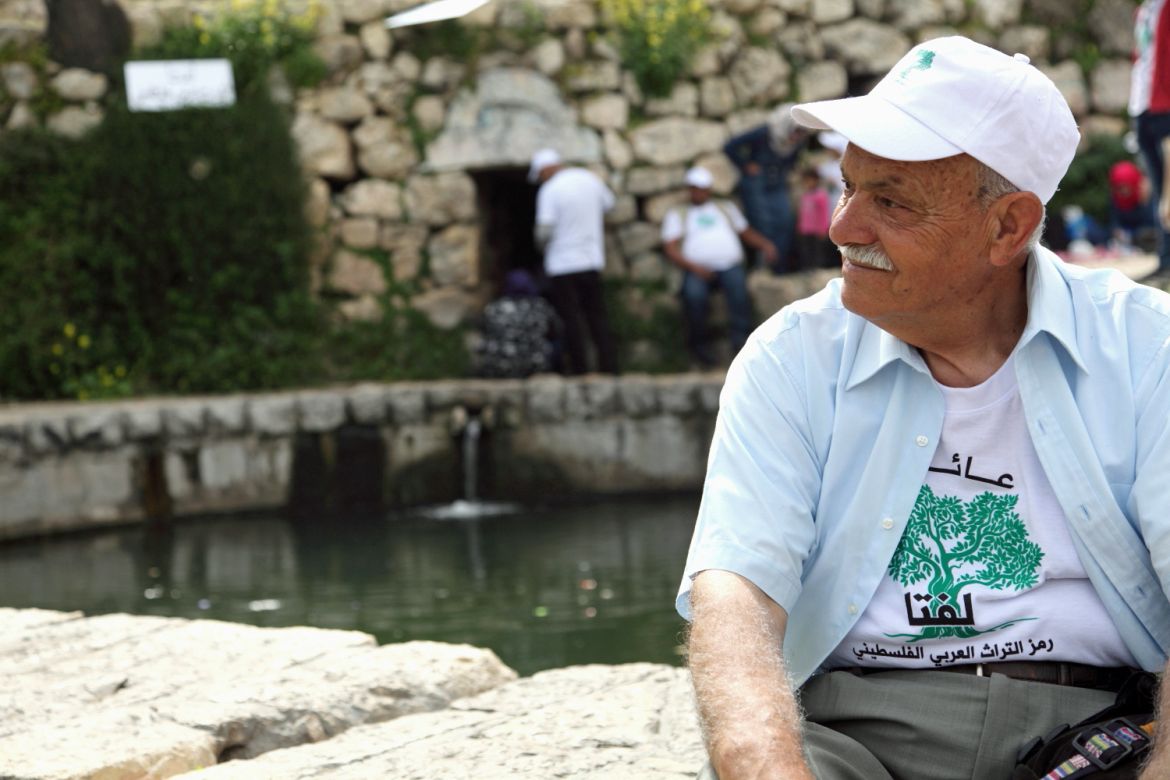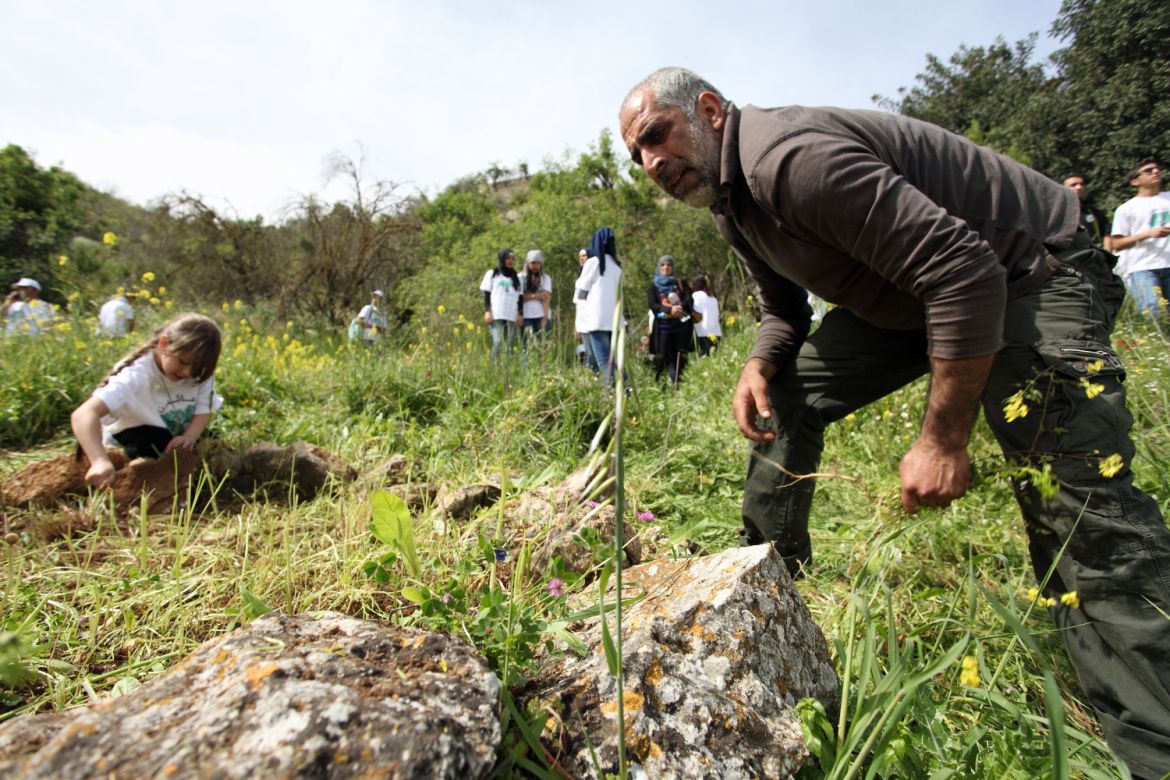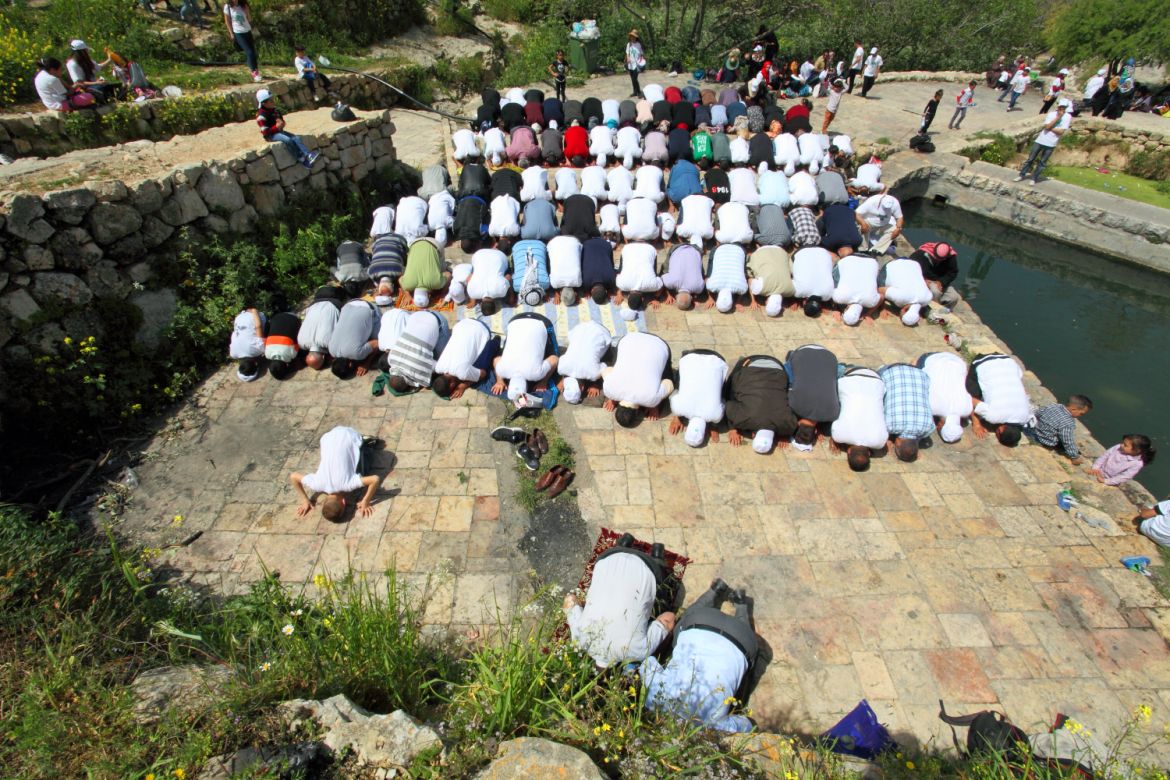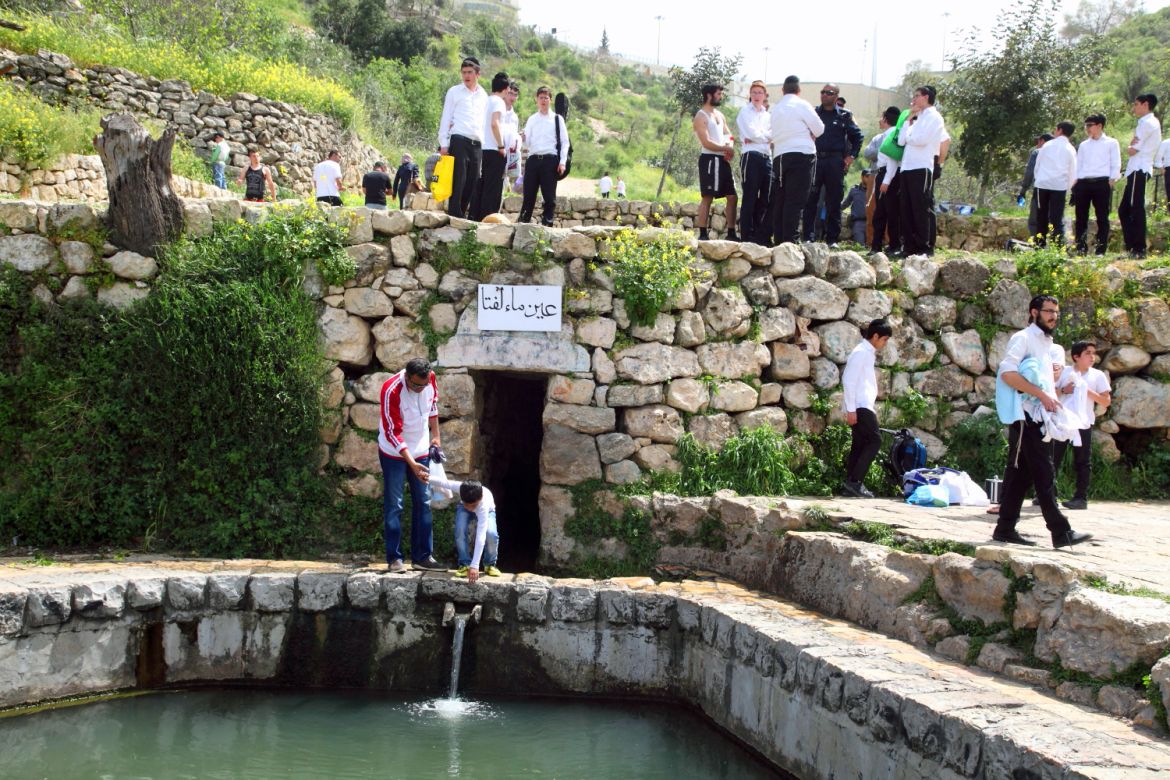In Pictures
Land Day: Palestinians walk among old memories
Every year on March 30, exiled Palestinians return home to protest the Israeli occupation.
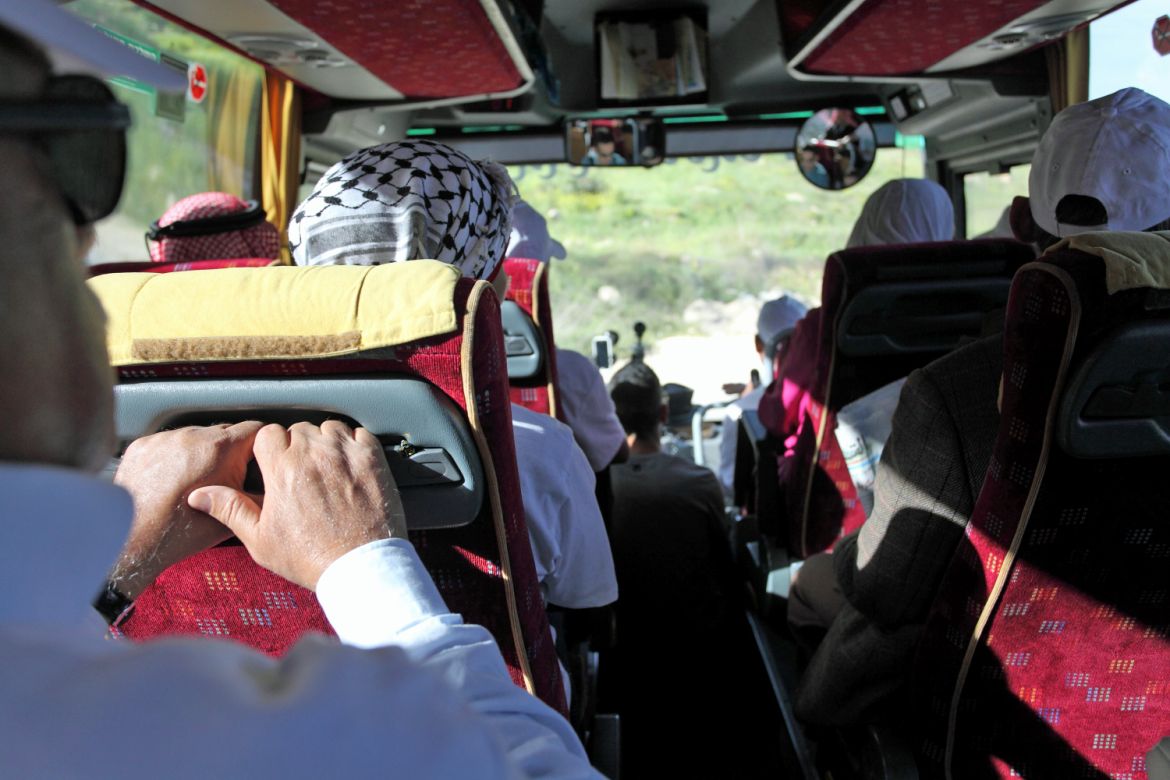
In early March of 1976, Israel published plans to expropriate about 20,000 dunums (2,000 hectares) of land around the Palestinian villages of Sakhnin and Arraba, which would later be used to establish new Jewish settlements and a military training camp. These plans were part of an official state policy to Judaize the Galilee following the creation of the state of Israel.
In a collective response on March 30, 1976 – marking one of the first displays of mass coordinated action by Palestinians inside Israel – Palestinians demonstrated from across Galilee in the north all the way to the Negev in the south. Six Palestinians were shot dead by Israeli forces and more than 100 were injured.
March 30 has since been commemorated annually by Palestinians as Yom al-Ard (Land Day), with collective anti-colonisation actions across historic Palestine and in the Palestinian diaspora.
For the exiled community of Lifta, Yom al-Ard is among the most important days for community-based action. Displaced from their village on the western slopes of Jerusalem in 1948, many villagers fled only a couple of kilometres across the Green Line to East Jerusalem.
Many of these refugees later fled internationally when East Jerusalem was occupied in 1967 and later annexed by Israel in 1981.
Still, a nucleus of Lifta’s community-in-exile remains to this day in East Jerusalem, living only a kilometre or two from their original homes but denied the right to return. Every year on Yom al-Ard, members of the community make the short journey to their home village to clean the cemetery, pray alongside the spring and walk among old memories.
